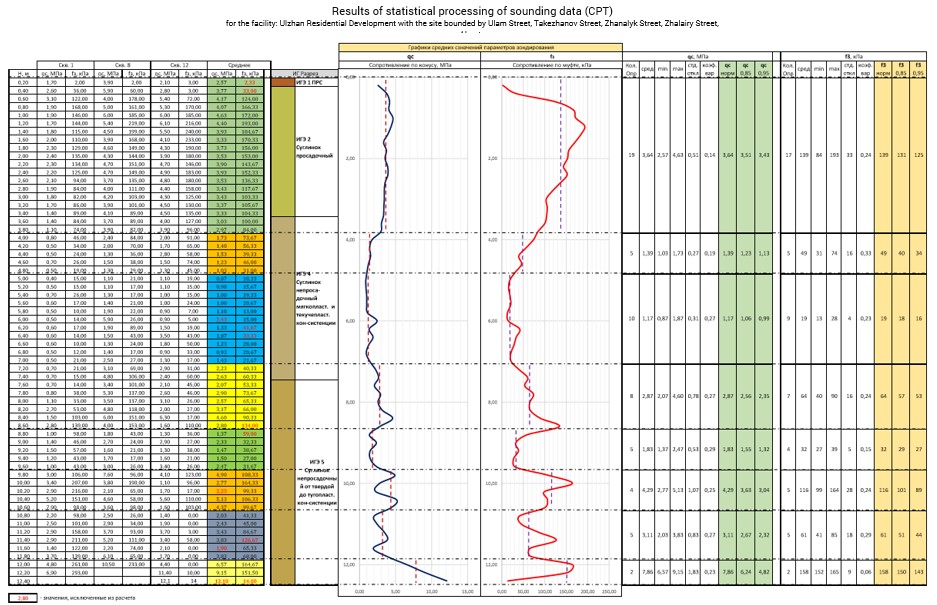Field testi
Field testing is the most accurate way to determine the actual in-situ properties of soils for construction purposes.
Cone Penetration Test (CPT)
Cone Penetration Test (CPT) shall be conducted for sandy-clayey soils in order to determine their physical and mechanical in-situ properties. A CPT is a slow pushing of a cone penetrometer into the ground using electronic sensors for recording the point resistance (qc) and side friction (fs).


This type of sounding technique is mandatory in the design of friction piles, and is also perfect for all sites with loose sandy-clayey soils due to the quick acquisition of information.
Dynamic penetration test (DPT)
Dynamic penetration test (DPT) is a cone tip driving into the ground by a weight (hammer) dropped freely from a height with recording the number of blows per each interval of penetration depth. A DPT is a simple and reliable way to determine the density and strength of sandy and gravelly soils, as well as to assess the sand liquefaction probability under earthquake effects.

Standard Penetration Test (SPT)
Standard Penetration Test (SPT) is a type of dynamic sounding technicque that is of considerable current use in international geotechnical practice. The sounding technicque of this type is performed during borehole drilling at specified intervals. A SPT probe, a split spoon sampler, shall be installed at the borehole bottom to be driven by hammer blows down to a depth of 0.45 m. After that, the borehole shall be drilled to a predetermined depth and the test shall be repeated.

Static plate load tests
Field screw plate load tests and flat plate load tests are the main and the most reliable methods for determining the deformation properties and analysis of actual yield of the building foundation. If SP RK 1.02-102-2014 and SP RK 1.02-105-2014 of the Republic of Kazakhstan are used during the survey, then this test shall be part of work for facilities of increased and standard importance level (with assumed loads on the foundation soils of more than 250 kPa).

Weight Sounding Test (WST)
Weight Sounding Test (WST) is used to determine the strength properties: soil shear strength, soil undrained shear strength and to assesses the spatial strength variability of clayey soils, organo-mineral soils, and organic soils, including those with mactrofragmental inclusions measuring 2-10 mm, the mass of which does not exceed 15%. A WST is conducted under conditions of practically no drainage by application of horizontal tangential load and the soil displacement along a cylindrical surface arising as a result of vane rotation below the borehole bottom or in subjacent mass.
This method is perfect for very soft soils and liquefied soils as soil sampling and installation of shear strength apparatus in them is impossible.



